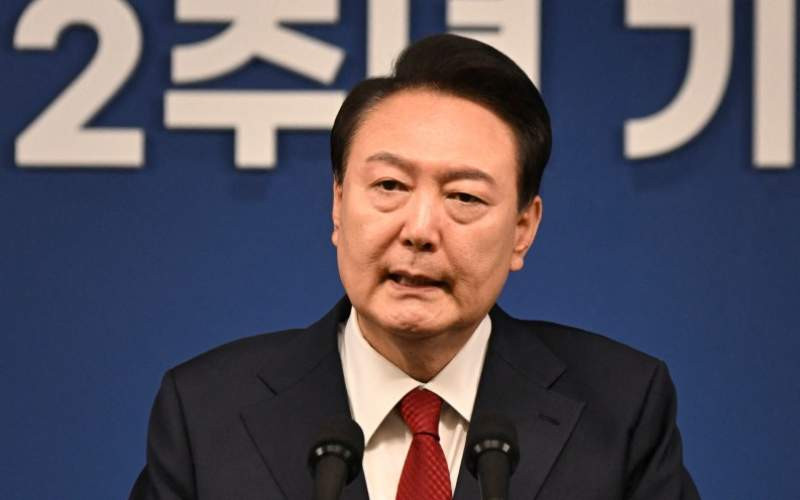×
The Standard e-Paper
Join Thousands Daily

South Korea's President Yoon Suk Yeol speaks during a press conference marking two years in office at the presidential office in Seoul on May 09, 2024. [AFP]
South Korean President Yoon Suk Yeol held a rare press conference Thursday, admitting "shortcomings" after his party's recent electoral defeat, and laying out policies on issues from the country's low birthrate to Russia's war in Ukraine.